PAW 2020
Planetary Health: Connecting food, people and the planet
A People Around the World (PAW) conference
March 12 and 13, 2019
Marquis Hall Event Centre
University of Saskatchewan ![]()
About PAW 2019
Planetary Health acknowledges the interdependence of human health and the health of the planet. The second annual People Around the World (PAW) conference is an important two-day event that will bring together a diverse audience of health, environment, Indigenous, and policy researchers, as well as community and industry partners to better understand our role to improve human health outcomes in a manner that is respectful to the Earth's ecosystems and inhabitants.
Join us at the University of Saskatchewan to attend interdisciplinary panel discussions, learning pods and more, including keynote addresses from:
Dr. Brent Loken (PhD), interdisciplinary scientist and director of science translation at EAT, the science-based global platform for food system transformation. Contributor to Food in the Anthropocene: the EAT–Lancet Commission on healthy diets from sustainable food systems. For the past 20 years, Brent has been a leader at all levels and has been involved in creating schools, saving rainforests, researching orangutans and clouded leopards, working with Indigenous peoples, collaborating with governments, leading international commissions, and liaising with business.
Loken made headlines a few years ago for rediscovering an extinct monkey species in Borneo and writing the first scientific paper on orangutan terrestriality. Dr. Loken received two of Canada's most prestigious research scholarships for his work. He received a PhD in resource management and sustainability in 2016 from Simon Fraser University in Canada. Loken has a drive and passion for creating change. The entrepreneurial spirit, energy and vision of the EAT organization matched his desire for making the world a better place and his beliefs in how this can best be achieved quickly.
Rarely patient, he believes that if we stand any chance of achieving the UN Sustainable Development Goals and the Paris Agreement, it will be because of fast moving organizations like EAT that disrupt the status quo and show the world a better way forward.
Dr. Courtney Howard, an emergency physician in Yellowknife, in Canada’s subarctic. She was the first author on the 2017 and 2018 Lancet Countdown on Health and Climate Change Briefing for Canadian Policymakers as well as being the 2018 international policy director for the Lancet Countdown.
In the pursuit of improved planetary health, Dr. Howard has done research on the health and environmental impacts of menstrual cups, as well as into the respiratory and wellness impacts of Yellowknife’s severe 2014 wildfire season. She led the successful campaign to have the Canadian Medical Association (CMA) divest its reserves of fossil fuels, and now sits on the CMA board.
As board president of the Canadian Association of Physicians for the Environment (CAPE), she has been involved in work on active transport, plant-rich diets, integrating health impact assessments into environmental assessments, carbon pricing, coal phase-out, and the health impacts of fracking. She sits on the board of Health in Harmony, represents CAPE on the board of the Global Climate and Health Alliance, is on the steering committee of the Planetary Health Alliance, and represented the voice of health at the Canada/UK “Powering Past Coal” announcement at COP23. She has two young daughters and loves to dance.
Dr. Donald Warne, a member of the Oglala Lakota tribe in Pine Ridge, SD, is a director of Indians into Medicine; director of Master Public Health, associate dean of Diversity, Equity and Inclusion; and professor in the Department of Family and Community Medicine at the University of North Dakota School of Medicine & Health Sciences. Dr. Warne earned his Doctorate of Medicine degree from the Stanford University School of Medicine and completed his residency training at the Good Samaritan Regional Medical center in Phoenix, AZ, and earned his Master of Public Health degree from Harvard University. He served several years as a primary care and integrative medicine physician with the Gila River Health Care Corporation in Sacaton, AZ, and three years as staff clinician with the National Institutes of Health in Phoenix. During Dr. Warne’s time in AZ, he conducted diabetes research and developed diabetes education and prevention programs in partnership with tribes.
Previously, he served as chair of the Department of Public Health at North Dakota State University. He currently serves as adjunct professor at the University of Nebraska Medical Center and the Sanford/University of South Dakota Medical School and adjunct clinical professor at the Sandra Day O’Connor College of Law, Indian legal Program at Arizona State University.
Dr. Warne is a member of the National Board of Trustees for March of Dimes; the Health Disparities Subcommittee for the Centers for Disease Control and Prevention; and the National Advisory Committee for Rural Health and Human Services with the Department of Health and Human Services.
Conference schedule
Day one: Tuesday, March 12, 2019
EATing with Dr. Brent Loken
Kick-off PAW 2019 at with an enlightening dinner and networking event, featuring a keynote address from Dr. Brent Loken (PhD) an interdisciplinary scientist and director of science translation at EAT, the science-based global platform for food system transformation. Contributor to Food in the Anthropocene: the EAT–Lancet Commission on healthy diets from sustainable food systems.
For the past 20 years, Brent has been a leader at all levels and has been involved in creating schools, saving rainforests, researching orangutans and clouded leopards, working with Indigenous peoples, collaborating with governments, leading international commissions, and liaising with business. Loken made headlines a few years ago for rediscovering an extinct monkey species in Borneo and writing the first scientific paper on orangutan terrestriality. Dr. Loken received two of Canada's most prestigious research scholarships for his work. He received a PhD in resource management and sustainability in 2016 from Simon Fraser University in Canada. Loken has a drive and passion for creating change. The entrepreneurial spirit, energy and vision of the EAT organization matched his desire for making the world a better place and his beliefs in how this can best be achieved quickly. Rarely patient, he believes that if we stand any chance of achieving the UN Sustainable Development Goals and the Paris Agreement, it will be because of fast moving organizations like EAT that disrupt the status quo and show the world a better way forward.
NOTE: A cash-only bar will be available for this event. Credit and debit are not accepted.
Location: St. Thomas More College, University of Saskatchewan (USask)
4:30 - 5:30 pm
- Conference registration and cocktails
- NOTE: A cash-only bar will be available for this event. Credit and debit are not accepted.
5:30 - 6:45 pm
- Dinner
7 - 7:45 pm
- KEYNOTE ADDRESS
7:45 - 8:15 pm
- Dessert Q&A
Day two: Wednesday, March 13, 2019
Location: St. Thomas More College, University of Saskatchewan (USask)
8 - 8:30 am
- Check-in and breakfast provided by the University of Saskatchewan College of Pharmacy and Nutrition
- Coffee provided by the Johnson Shoyama Graduate School of Public Policy
8:30 - 9 am
- Welcome and opening remarks
- Dr. Darcy Marciniuk—Associate vice-president, research, University of Saskatchewan
- Remarks from the Conference Chair
- Dr. Steven Jones (PhD)—Interim assistant vice-provost, health and executive director of the School of Public Health, University of Saskatchewan
- Honour Song
- Rollin Baldhead—president, University of Saskatchewan Students’ Union (USSU)
- Prayer
- Elder Florence Allen, Prince Albert, Saskatchewan
9:15 - 10:15 am
-
-
- KEYNOTE SPEAKER
- Indigenous perspectives on health disparities by Dr. Donald Warne
- Dr. Donald Warne, a member of the Oglala Lakota tribe in Pine Ridge, SD, is a director of Indians into Medicine; director of Master Public Health, associate dean of Diversity, Equity and Inclusion; and professor in the Department of Family and Community Medicine at the University of North Dakota School of Medicine & Health Sciences. Dr. Warne earned his Doctorate of Medicine degree from the Stanford University School of Medicine and completed his residency training at the Good Samaritan Regional Medical center in Phoenix, AZ, and earned his Master of Public Health degree from Harvard University. He served several years as a primary care and integrative medicine physician with the Gila River Health Care Corporation in Sacaton, AZ, and three years as staff clinician with the National Institutes of Health in Phoenix. During Dr. Warne’s time in AZ, he conducted diabetes research and developed diabetes education and prevention programs in partnership with tribes. Previously, he served as chair of the Department of Public Health at North Dakota State University. He currently serves as adjunct professor at the University of Nebraska Medical Center and the Sanford/University of South Dakota Medical School and adjunct clinical professor at the Sandra Day O’Connor College of Law, Indian legal Program at Arizona State University. Dr. Warne is a member of the National Board of Trustees for March of Dimes; the Health Disparities Subcommittee for the Centers for Disease Control and Prevention; and the National Advisory Committee for Rural Health and Human Services with the Department of Health and Human Services.
- Indigenous perspectives on health disparities by Dr. Donald Warne
- KEYNOTE SPEAKER
-
- Q&A
-
10:15 - 10:30 am
-
-
- Networking break
-
10:30 - 11:30 am
-
-
- PANEL DISCUSSION 1 — The changing landscape of the human body: A look at epigenetics and the impact of diet, lifestyle and the environment
- Dr. Donald Warne—Associate dean of diversity, equity and inclusion; director of Indians into Medicine (INMED) Program, director of the Master of Public Health (MPH) Program, and professor of family and community medicine at the University of North Dakota School of Medicine and Health Sciences. Dr. Warne does research in health disparities, health policy, primary care, epidemiology and public health.
- Dr. Chris Eskiw (PhD)—Assistant professor, Food and Bioproduct Sciences, College of Agriculture and Bioresources, University of Saskatchewan
- Dr. Michelle Johnson-Jennings (PhD)—Associate professor, Indigenous Studies, College of Agriculture and Bioresources; and associate in Community Health and Epidemiology, College of Medicine, University of Saskatchewan. Associate professor at the University of Colorado School of Public Health. William T. Fulbright US Scholar Fellow (Traditional Healing Practices. University of Waikato, Hamilton, NZ.)
- Dr. Pammla Petrucka (PhD)—Professor, College of Nursing, University of Saskatchewan. Pammla is a nurse scientist focusing on global health and populations of potential. She works primarily with women, youth, and children as well as Indigenous populations looking broadly at health and healthier outcomes.
- PANEL DISCUSSION 1 — The changing landscape of the human body: A look at epigenetics and the impact of diet, lifestyle and the environment
-
- Q&A
-
11:30 am - 12:30 pm
-
-
- Lunch
-
12:30 - 1:30 pm
-
-
- KEYNOTE SPEAKER
- Healthy planet, healthy people by Dr. Courtney Howard
- Dr. Courtney Howard is an emergency physician in Yellowknife, in Canada’s subarctic. She was the first author on the 2017 and 2018 Lancet Countdown on Health and Climate Change Briefing for Canadian Policymakers as well as being the 2018 international policy director for the Lancet Countdown. In the pursuit of improved planetary health, Dr. Howard has done research on the health and environmental impacts of menstrual cups, as well as into the respiratory and wellness impacts of Yellowknife’s severe 2014 wildfire season. She led the successful campaign to have the Canadian Medical Association (CMA) divest its reserves of fossil fuels, and now sits on the CMA board. As board president of the Canadian Association of Physicians for the Environment (CAPE), she has been involved in work on active transport, plant-rich diets, integrating health impact assessments into environmental assessments, carbon pricing, coal phase-out, and the health impacts of fracking. She sits on the board of Health in Harmony, represents CAPE on the board of the Global Climate and Health Alliance, is on the steering committee of the Planetary Health Alliance, and represented the voice of health at the Canada/UK “Powering Past Coal” announcement at COP23. She has two young daughters and loves to dance.
- Healthy planet, healthy people by Dr. Courtney Howard
- KEYNOTE SPEAKER
-
1:30 - 1:45 pm
-
-
- Networking break
-
1:45 - 2:45 pm
-
-
- PANEL DISCUSSION 2 — Deform and reform: Resilient food systems and adaptability
- Dr. Courtney Howard—President of the Canadian Association of Physicians for the Environment and primary author on the 2017 Canadian Brief for the Lancet Countdown on Climate Change on behalf of the Canadian Public Health Association
- Dr. Terry Maresca—Dr. Maresca (Mohawk Tribe, Kahnawake Band) has provided health care as a family doctor in tribal, Indian Health Service, and urban Indian health programs in the Great Plains, Southwest, and Pacific NW since 1987. She is a clinical associate professor at University of Washington School of Medicine, Department of Family Medicine, and the former director of their Native American Center of Excellence focused on medical student education around American Indian and Alaska Native health issues. Dr. Maresca is also a former president of the Association of American Indian Physicians.
- Dr. Wanda Martin (PhD)—Assistant professor, College of Nursing, University of Saskatchewan
- Dr. Peter W.B. Phillips (PhD)—Distinguished professor, Johnson Shoyama Graduate School of Public Policy; associate member, Department of Bioresource, Policy, Business and Economics, College of Agriculture; and associate member, Department of Economics, College of Arts and Science, University of Saskatchewan
- Dr. Tim Sharbel (PhD)—Global Institute for Food Security research chair in seed biology; and professor, plant sciences, College of Agriculture and Bioresources, University of Saskatchewan
- Q&A
- PANEL DISCUSSION 2 — Deform and reform: Resilient food systems and adaptability
-
2:45 - 3 pm
-
-
- Networking break
- Networking break
-
3 - 4:30 pm
-
- Photo competition winner announcement
- Dr. Derek Jennings (PhD)—Faculty, Community Health and Epidemiology, University of Saskatchewan
- Conference chair remarks
- Dr. Steven Jones (PhD)—Interim assistant vice-provost, health and executive director of the School of Public Health, University of Saskatchewan
- LEARNING PODS
- Experiential learning activities for conference attendees to further augment their understanding of local solutions to global problems and the complexities surrounding planetary health
- Beyond GMO: new technologies in genetic engineering for designing future food
- STM Room 450
- Presented by Dr. Joanne Ernest (PhD), Dr. Dorota Paczesniak (PhD) and Megan Fulmes
- Microgreens for indoor gardens
- STM Room 260
- Presented by Elena Benic and Helen Shook
- Seasonal gifts of the earth: Indigenous food and plants as medicine
- STM Room 2002
- Presented by Dr. Terry Maresca (Mohawk Tribe, Kahnawake Band). Dr. Maresca has provided health care as a family doctor in tribal, Indian Health Service, and urban Indian health programs in the Great Plains, Southwest, and Pacific NW since 1987. She is a clinical associate professor at University of Washington School of Medicine, Department of Family Medicine, and the former director of their Native American Center of Excellence focused on medical student education around American Indian and Alaska Native health issues. Dr. Maresca is also a former president of the Association of American Indian Physicians.
- The busy person’s guide to waste awareness
- STM Room 160
- Presented by Matt Wolsfield
- Beyond GMO: new technologies in genetic engineering for designing future food
- Experiential learning activities for conference attendees to further augment their understanding of local solutions to global problems and the complexities surrounding planetary health
4:30 - 5 pm
- Networking break in ARTS 241
5 pm
- FILM SCREENING — Anthropocene: The Human Epoch (Arts 241)
- PAW 2019 attendees are invited to attend "a cinematic meditation on humanity’s massive reengineering of the planet." Anthropocene: The Human Epoch is a four years in the making feature documentary film from the multiple-award winning team of Jennifer Baichwal, Nicholas de Pencier and Edward Burtynsky.
- This PAW 2019 event is open to everyone. Conference registration is not required.
- Networking break in ARTS 241
- Photo competition winner announcement
-
PAW 2020 will be located at:
Marquis Hall Event Centre
University of Saskatchewan
97 Campus Drive
Saskatoon, SK S7N 4L3
Click here for a Google Map listing.
PARKING
There is no dedicated parking for conference registrants; however, pay parking is available across from Place Riel and other areas around campus.
Student Photo Contest
PAW 2019 is hosting a Student Photo Contest with prizes of $100, $200, and $300. Students are welcome to submit entries on one or more of this year's themes. Click here for contest information.
UPDATE: Congratulations to our winners!
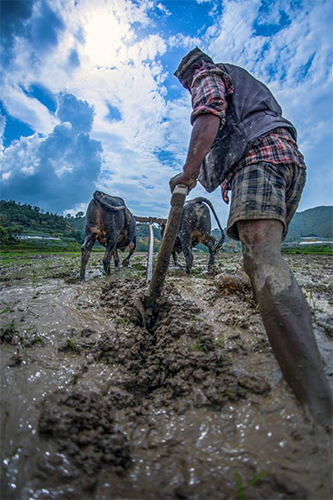 |
PAW 2019 Planetary Health Conference Photo Competition Winner, First Place. by Bhuwan Bhandari, Arts & Science. |
 |
PAW 2019 Planetary Health Conference Photo Competition Winner, Second Place. by Peter Toh, Veterinary Medicine. — at University of Saskatchewan. |
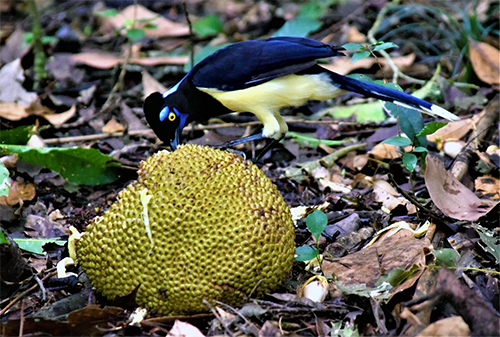 |
PAW 2019 Planetary Health Conference Photo Competition Winner, Third Place. by Nick Belliveau, Biology. — at University of Saskatchewan. |
Food for thought...
“Understanding and examining issues related to planetary health is an absolute requirement for those of us who operate within the health and social sciences, environmental organizations, or anywhere human civilization and nature intersect. PAW 2019 is an opportunity for the province and the USask community to take stock of the challenges and opportunities that arise when we compare our resources and knowledge against the impact we make on the natural world.”
— Dr. Steven Jones, PhD
Interim Assistant Vice-Provost, Health and Executive Director of the School of Public Health, University of Saskatchewan
“The People Around the World (PAW) 2019 conference is an initiative of the University of Saskatchewan’s International Blueprint For Action. The objective of this initiative is to address global challenges and improve the health and well-being of people around the world. The PAW conference presents an exceptional learning opportunity to collaborate and engage in catalytic conversations with local communities, government, private sector, organizations, researchers, and students across various disciplines in Saskatchewan and beyond.”
— Dr. Meghna Ramaswamy, PhD
Director, International Research, University of Saskatchewan
"The only conditions modern humans have known so far are changing, and changing fast ... We need to move beyond guilt and blame and move to the practical tasks at hand ... If people can truly understand what is at stake, I believe that they will give permission to businesses and governments to get on with the practical solutions. As a species, we are expert problem solvers but we haven't yet applied ourselves to this problem with the focus that it requires. We can create a world with clean air and water, unlimited energy and fish stocks that will sustain us well into the future — but, to do that, we need a plan ... What we do now and in the next few years will profoundly affect the next few thousand years."
— Sir David Attenborough, 2019
Curious about Planetary Health? Check out this infographic from The Lancet for a refresher before heading to PAW 2019!
Click here to watch Planetary Health: Narrated Sir David Attenborough.
How can we think beyond our own bodies when it comes to health?
LISTEN via CBC: The Planetary Health Diet (6:55)
EAT-Lancet Commission Summary Report
Conference-at-a-Glance
Day 1: March 12 - EATing with Dr. Brent Loken
4:30 - 5:30 Registration and reception
5:30 - 6:45 Dinner with comments from Chef Christopher Daniels Jones
7:00 - 7:45 Keynote: Dr. Brent Loken, PhD
7:45 - 8:15 Dessert and Q&A
Day 2: March 13
8:00 - 8:30 Check-in and breakfast sponsored by the College of Pharmacy and Nutrition
Coffee provided by the Johnson Shoyama Graduate School of Public Policy
8:30 - 9:00 Opening remarks, address from the conference chair, Honour Song and prayer
9:15 - 10:15 Keynote: Dr. Donald Warne
10:15 - 10:30 Networking break
10:30 - 11:30 Panel discussion: The changing landscape of the human body: A look at epigenenetics and the impact of diet, lifestyle and the environment
11:30 - 12:30 Lunch
12:30 - 1:30 Keynote: Dr. Courtney Howard
1:30 - 1:45 Networking break
1:45 - 2:45 Panel discussion: Deform and Reform: Resilient food systems and adaptability
2:45 - 3:00 Networking break
3:00 - 4:30 Photo competition winners
Conference chair remarks
Learning Pods:
• Beyond GMO: new technologies in genetic engineering for designing future food (STM Room 450)
• Microgreens for indoor gardens (STM Room 260)
• Seasonal gifts of the earth: Indigenous food and plants as medicine (STM Room 2002)
• The busy person’s guide to waste awareness (STM Room 160)
4:30 - 5:00 Networking break in Arts 241
5:00 - 6:30 Film screening: Anthropocene: The Human Epoch (Arts 241)
Sponsors
Thank you to our PAW 2019 sponsors
The People Around the World (PAW) 2019 conference would not be possible without the generous support of the following sponsors. Thanks to their contributions, PAW 2019 has been able to spark inspiration for lifelong learning as well as additional scholarly and community service activities from our broader research community.
- The USask International Research and Partnerships Office
- The USask School of Public Health
- The Saskatchewan Health Research Foundation (SHRF)
- The USask College of Arts & Science
- The USask College of Pharmacy and Nutrition
- The Johnson Shoyama Graduate School of Public Policy
- The University of Saskatchewan Conference Fund Program
- Canadian Institutes of Health Research (CIHR)
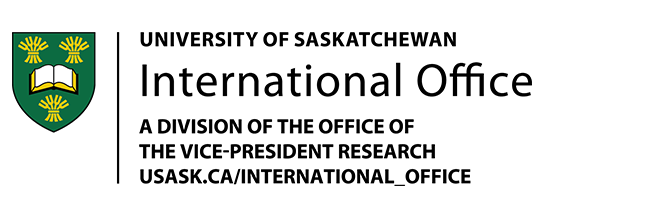 |
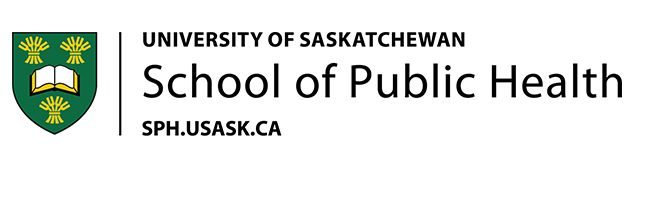 |
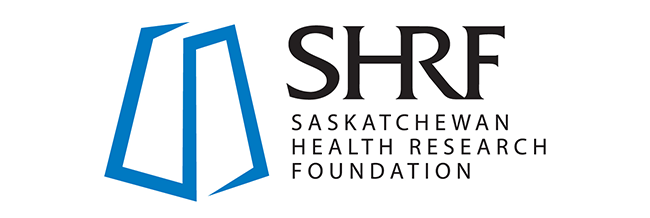 |
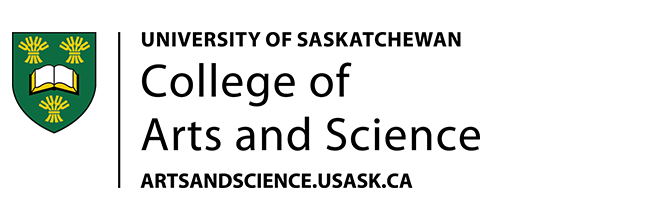 |
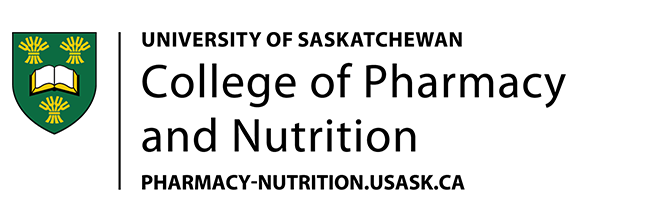 |
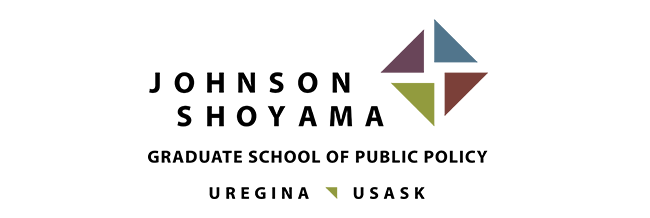 |
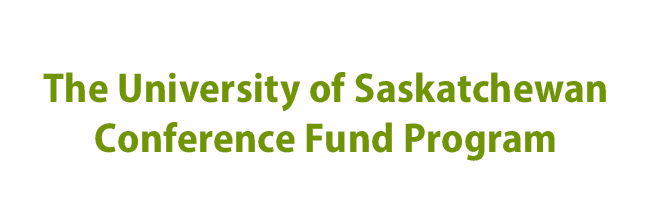 |
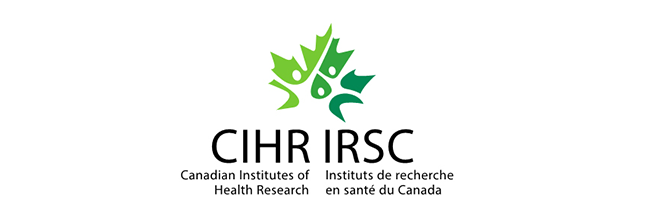 |
